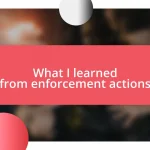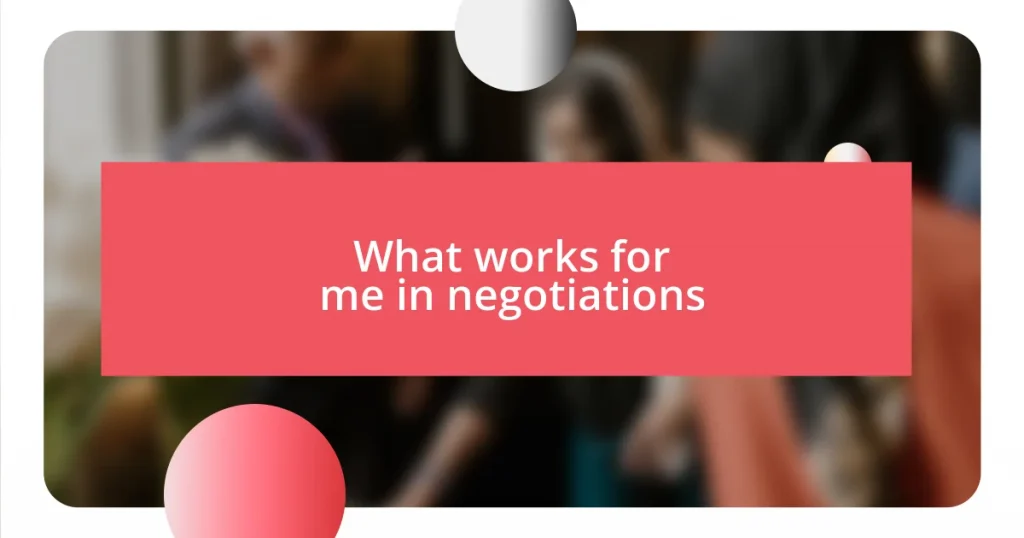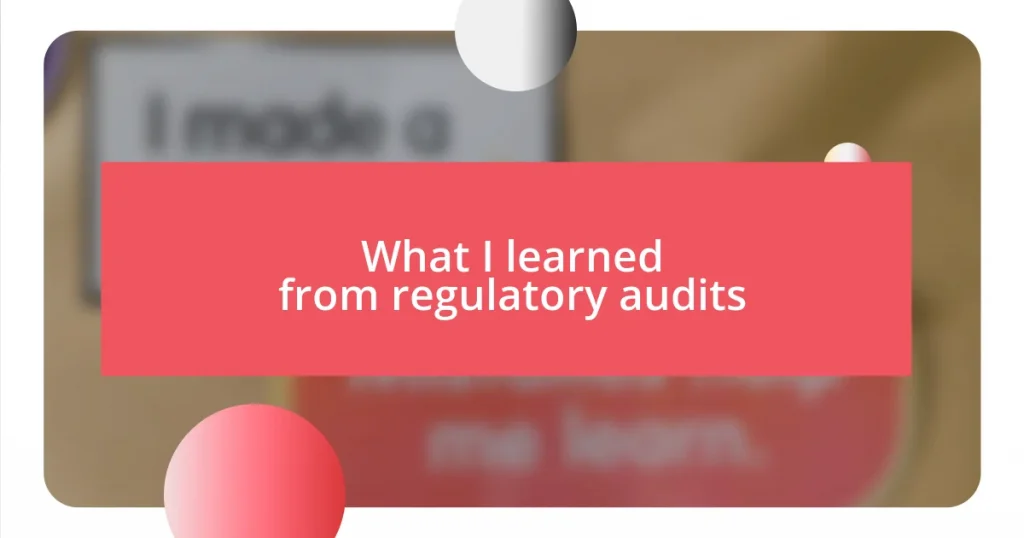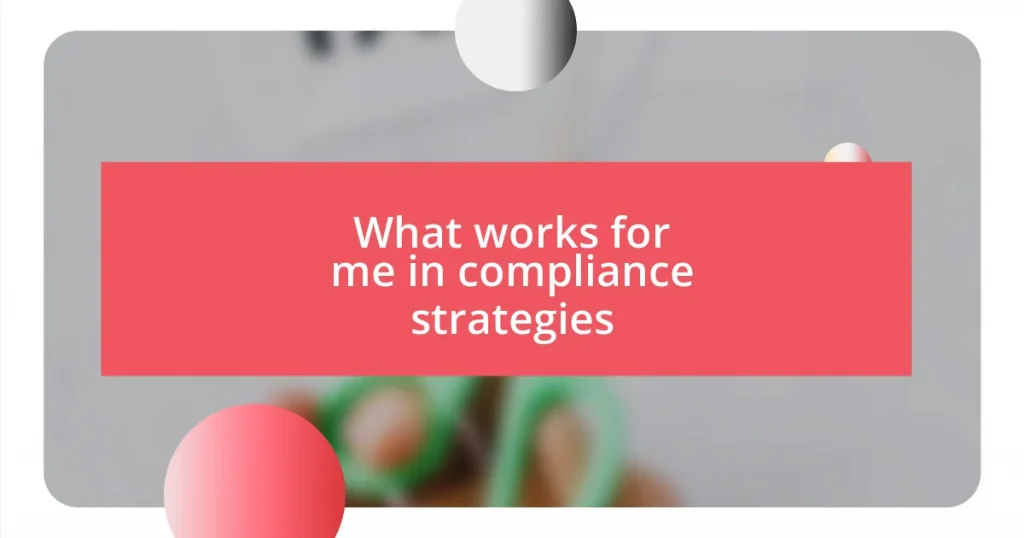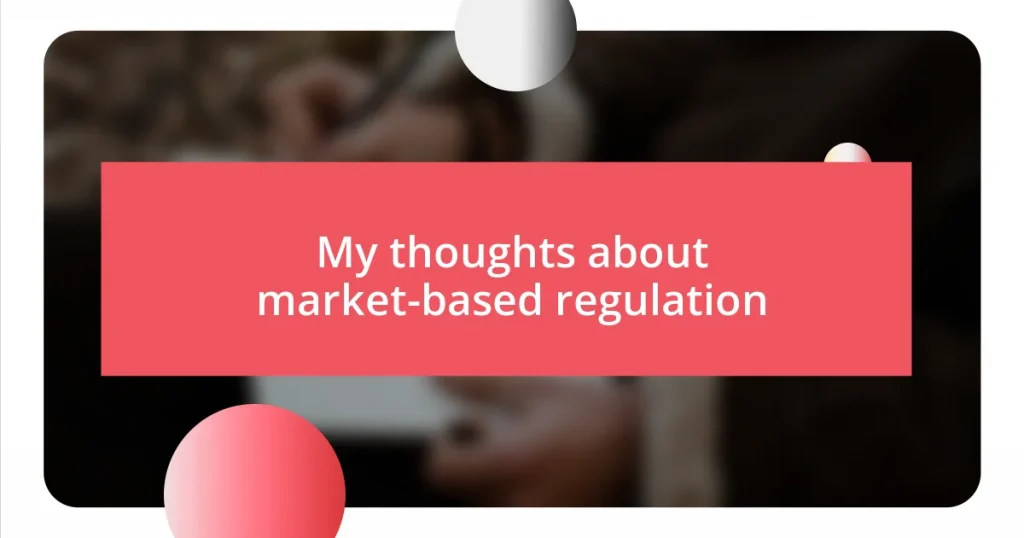Key takeaways:
- Understanding needs and interests is crucial for effective negotiation; preparation, active listening, and flexibility enhance outcomes.
- Building rapport through shared values and personal stories fosters trust and creates a collaborative atmosphere.
- Reflecting on negotiation experiences helps identify patterns, improve assertiveness, and enhances overall negotiation skills.
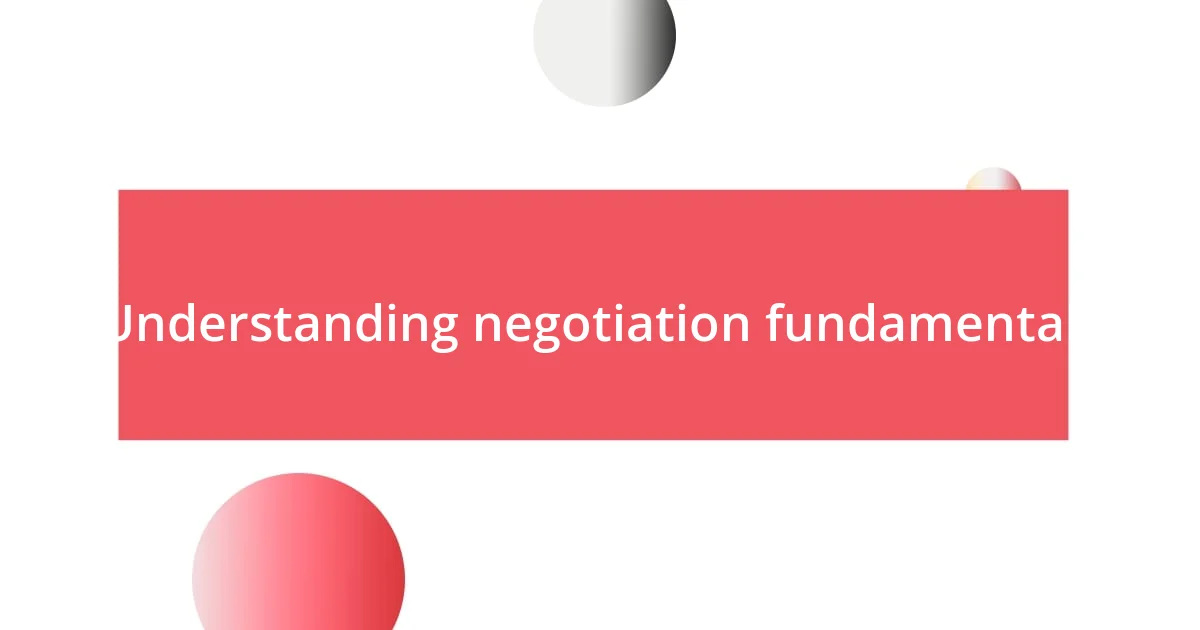
Understanding negotiation fundamentals
Negotiation is rooted in the dynamic interplay of needs and interests. I remember a time when I was negotiating a contract for a project that mattered deeply to me. The experience revealed that understanding what both sides truly want is crucial; it’s not just about the final numbers but about building a connection based on mutual goals. Have you ever felt that the undercurrents of a conversation can be more telling than the words exchanged?
I’ve found that being prepared with clear objectives can make all the difference. In my early days, I often walked into negotiations without a solid game plan, and I quickly learned the value of outlining my priorities. This doesn’t mean being rigid; flexibility allows me to respond effectively when the conversation shifts. Isn’t it interesting how being open to change can actually enhance our position?
Listening is perhaps one of the most underrated tools in negotiations. The more attentively I pay attention, the better I gauge the other party’s emotions and concerns. In one memorable negotiation, I realized that letting my counterpart express their frustrations led us to common ground. This taught me that negotiation is less about talking and more about understanding—after all, how can we find a solution if we don’t truly hear each other?
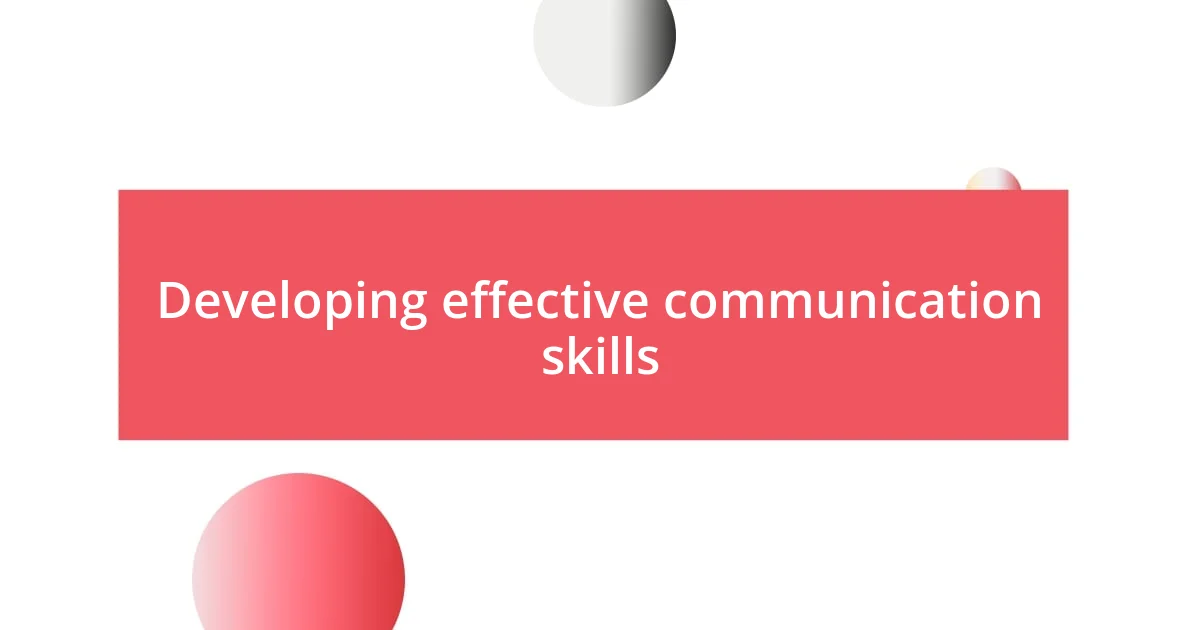
Developing effective communication skills
Effective communication is not just about what I say but also how I express it. I’ve had moments in negotiations where my choice of words made all the difference, especially when emotions were running high. I recall a time when I unintentionally used jargon that my counterpart didn’t resonate with, which led to confusion and frustration. It reminded me that clarity is king. Simplifying my messages fosters understanding and can defuse tension right away.
Here’s a quick list of strategies I’ve found helpful in honing my communication skills for negotiation:
– Practice active listening: Reflect back insights to show understanding.
– Stay aware of non-verbal cues: Body language speaks volumes; I pay attention to gestures and facial expressions.
– Ask open-ended questions: This encourages dialogue and can unveil underlying interests.
– Be concise: Clear and direct language minimizes misinterpretation.
– Maintain a calm tone: Even in heated discussions, a steady voice can set a positive tone.
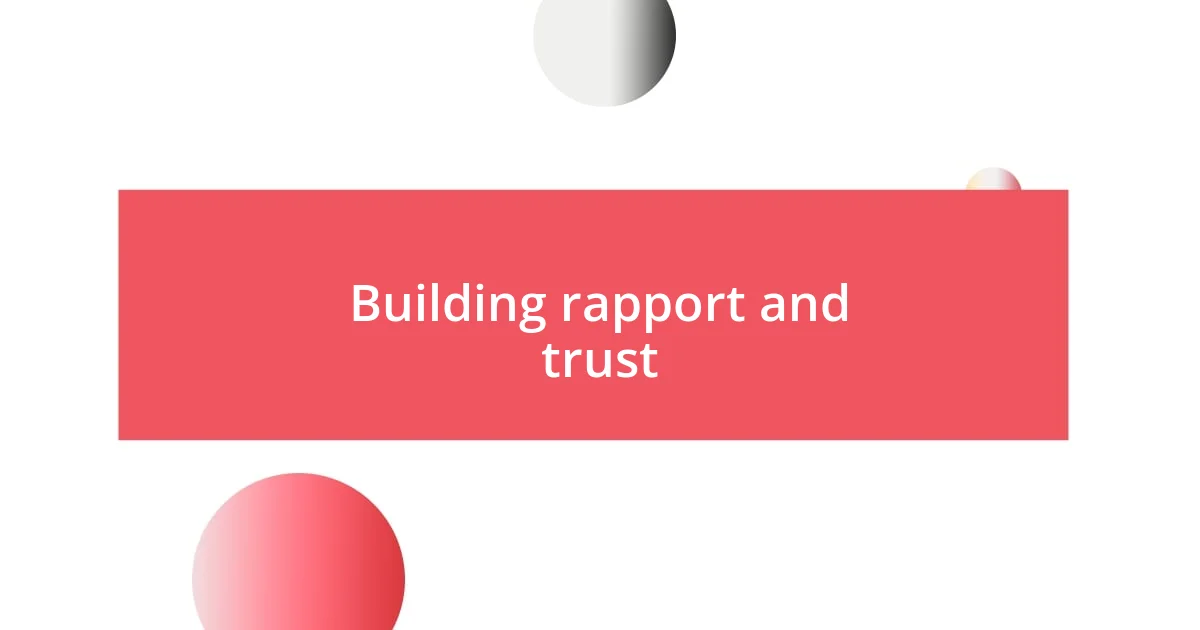
Building rapport and trust
Building rapport and trust is a fundamental aspect of successful negotiations. I recall a particularly challenging negotiation where I felt an immediate connection with my counterpart after sharing a personal story about overcoming a setback. That moment of vulnerability created a space where we could both express our concerns more freely, turning the negotiation from a transaction into a collaborative effort. Have you ever experienced how openness can transform a tense situation?
In my experience, establishing common ground can significantly enhance trust, and I’ve learned it’s more about finding shared values rather than just similar goals. One time, I discussed our respective passions for sustainability during a contract negotiation. This simple conversation not only strengthened our relationship but also anchored our discussions in mutual respect. When people see how your values align, they’re more likely to trust you, which is invaluable in negotiations.
Engaging in small talk at the start of a negotiation often sets a positive tone. I tend to ask about recent events or even mention a favorite hobby. By doing so, I’ve often sensed the atmosphere lighten, making it easier to dive into the heavier topics ahead. It’s interesting how a bit of light-hearted conversation can lead to deeper, more impactful discussions later on.
| Approach | Impact |
|---|---|
| Sharing Personal Stories | Creates vulnerability and strengthens connection |
| Finding Common Values | Enhances trust and collaboration |
| Engaging in Small Talk | Lightens the atmosphere, facilitating deeper discussions |
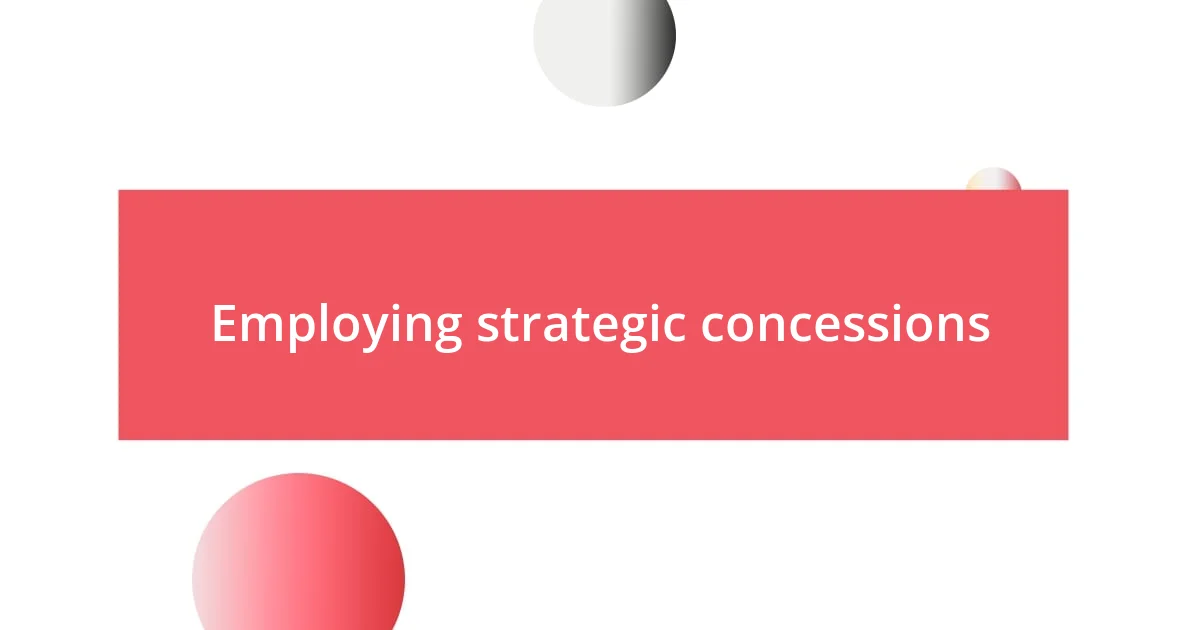
Employing strategic concessions
Employing strategic concessions is an art that can significantly influence the outcome of a negotiation. I remember a pivotal moment when I conceded a minor point that I didn’t really care about, and it resulted in my counterpart yielding a much larger request. It’s fascinating how a small gesture, when framed properly, can build goodwill and lead to more substantial agreements. Have you ever noticed how effective it can be to offer something small in return for a bigger payoff?
In my experience, timing plays a critical role when making concessions. One tactic I’ve found useful is to offer a concession after the other party presents their demands. This approach not only shows my willingness to collaborate but also shifts the focus back to what I want to achieve. I once gave in on a deadline extension, which fostered a spirit of compromise that eventually paved the way for areas where I held firm. It’s like dancing; I’ve learned that we need to lead and follow at different moments to create harmony.
I’ve also discovered that being transparent about my concessions can strengthen trust. For example, while negotiating a project scope, I openly explained that reducing the budget would mean scaling back on some features. This honesty created a collaborative atmosphere where my counterpart felt involved in the decision-making process. Asking questions like, “What can we both give up to make this work?” has also led to creative solutions that satisfied both parties. It’s remarkable how strategic concessions can turn a potential standoff into an opportunity for collaboration.
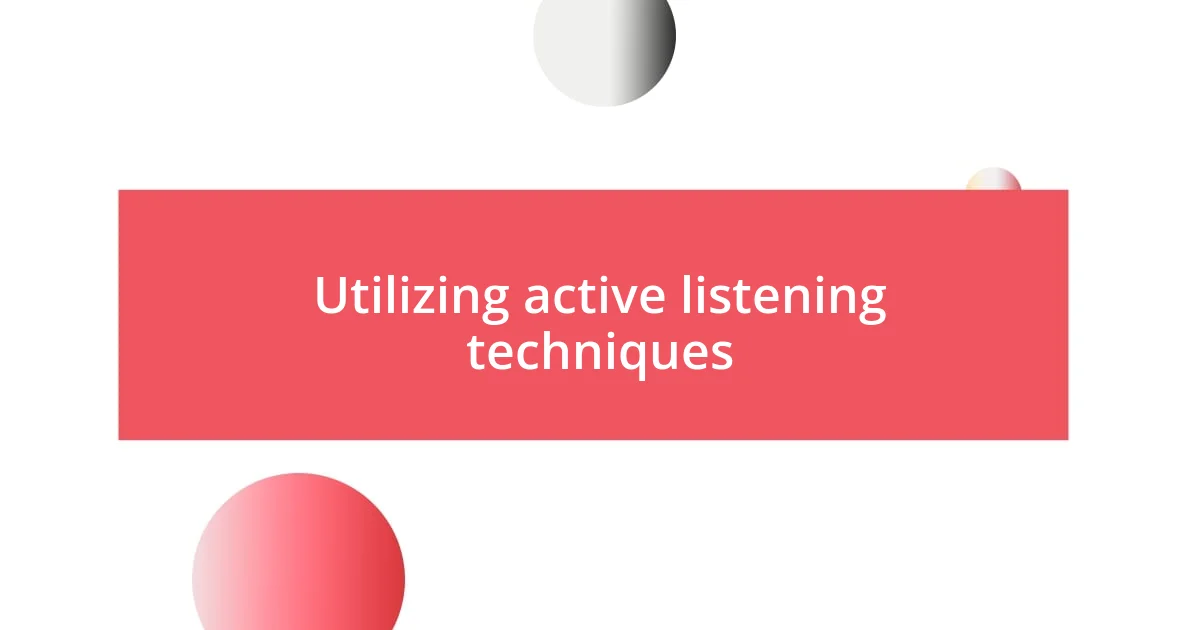
Utilizing active listening techniques
Active listening techniques have been a game-changer in my negotiations. I vividly recall a time when my counterpart seemed frustrated and disengaged. Instead of pushing my agenda, I paused to reflect back what I heard, saying, “It sounds like you’re concerned about the timeline.” That simple acknowledgment opened the door for a much deeper conversation. Have you ever noticed how just being heard can ease tensions?
Emphasizing non-verbal cues also plays a significant role in active listening. I make it a point to nod, maintain eye contact, and even adjust my posture to signal my engagement. Once, during a high-stakes meeting, I noticed my client relax visibly as I mirrored their body language. It was fascinating to see how these subtle actions reinforced my commitment to understanding their perspective. Can you think of a moment when body language communicated more than words ever could?
I’ve learned that asking clarifying questions can work wonders in negotiations. One instance that stands out was when I inquired, “Could you elaborate on that concern?” The conversation shifted, and my counterpart revealed underlying issues that had gone unspoken. This not only clarified our position but truly showcased my interest in finding a collaborative solution. Have you ever asked a simple question that opened up an entirely new dimension in a discussion?
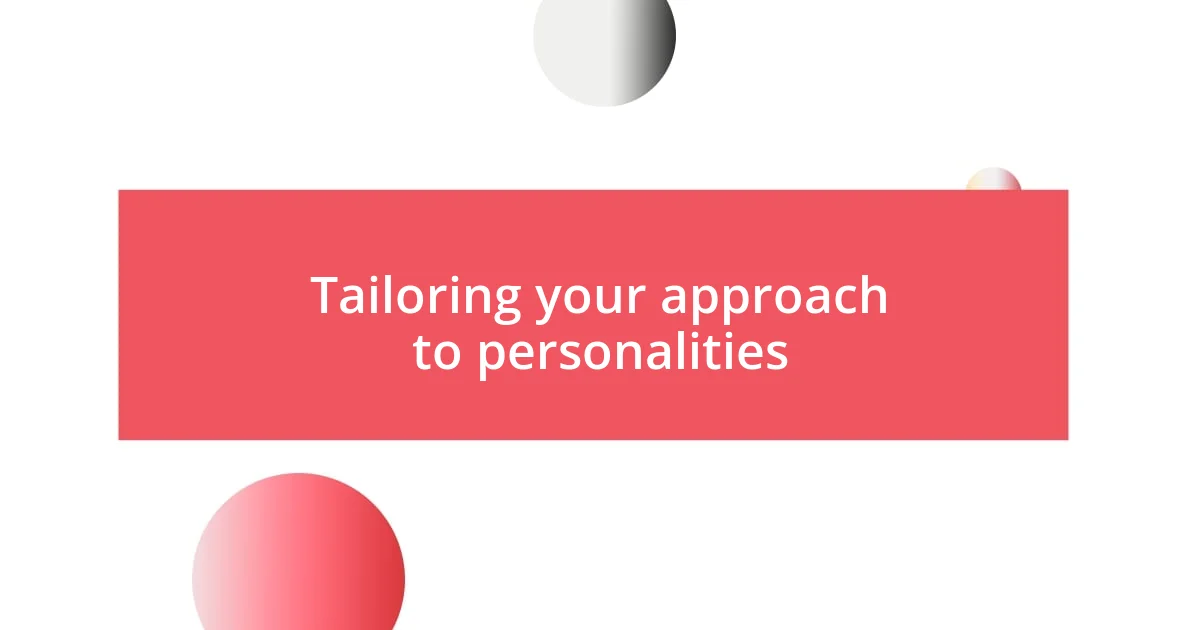
Tailoring your approach to personalities
Tailoring your negotiation approach to different personalities is crucial for fostering a productive dialogue. I remember negotiating with someone who was very data-driven. Instead of diving into emotional appeals, I presented clear statistics and logical arguments. The moment I aligned my approach with their analytical mindset, I noticed a shift in our conversation. Have you ever realized how adapting your style can lead to a breakthrough?
In contrast, I’ve encountered more intuitive personalities who respond better to stories and visions. During one negotiation, I shared a narrative about a similar project, illustrating the potential benefits. I could see their eyes light up, and our connection deepened. It’s intriguing how a simple story can resonate on an emotional level, creating a more receptive atmosphere. Have you considered the impact of your storytelling on the negotiation process?
I’ve also found that assessing mood and body language is vital when adapting my approach. There was a time when I sensed my counterpart was anxious; rather than pushing hard for my points, I opened the floor for a casual exchange about their concerns. This relaxed atmosphere allowed for more authentic dialogue and, ultimately, a successful agreement. How often do you take a moment to gauge the emotional state of the other party in your negotiations?
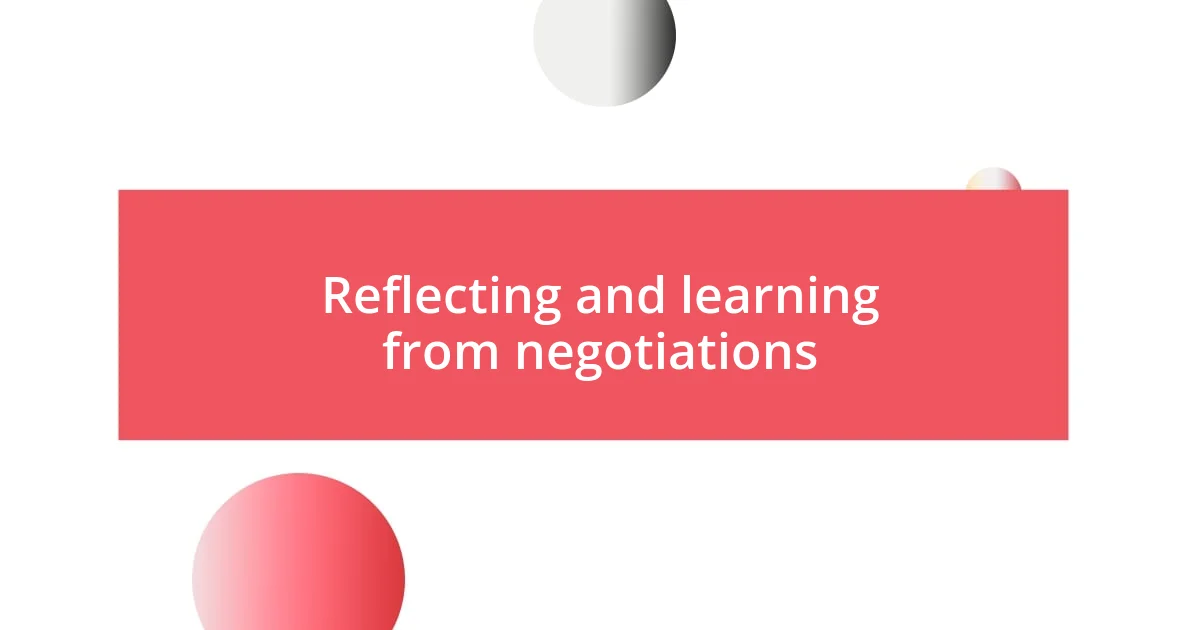
Reflecting and learning from negotiations
Reflecting after a negotiation is where the real learning happens for me. I often take some quiet time to run through the events and pinpoint what worked well and what didn’t. For instance, I recall a negotiation where I left feeling uneasy about my responses. By analyzing those moments, I uncovered that being overly reactive caused me to miss valuable opportunities for connection. How often do you give yourself that crucial time to reflect post-negotiation?
Another valuable lesson is recognizing patterns in my negotiation encounters. I once noted that I frequently struggled with assertiveness in conversations where the stakes were high. After several reflections, I made it a point to practice articulating my position more confidently. The next negotiation presented itself, and I felt a noticeable difference in my delivery. Isn’t it fascinating how understanding your patterns can lead to growth in your skills?
I’ve found that sharing my reflections with a trusted colleague can provide breakthrough insights. Once, I discussed a challenging negotiation where I sensed distrust from the other party. Talking it out helped me realize that my body language may have communicated uncertainty. This realization not only improved my next negotiation but also deepened my understanding of the importance of appearing grounded and confident. Do you have someone you trust to discuss your negotiation experiences with?






